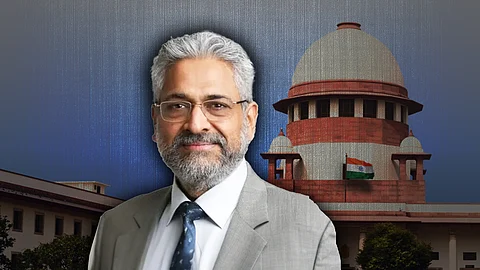

The Supreme Court on Tuesday, August 12, ruled that no coercive action can be taken against Siddharth Varadarajan, editor of the news website The Wire, and members of the Foundation of Independent Journalism for publishing an article on Operation Sindoor. The court said that custodial interrogation is not necessary when there is no imminent threat to public order.
“We are not classifying them [journalists] as a separate class. We are only seeing the balancing rights of a fundamental freedom of speech against your right to investigate and maintain public order. When there is no imminent threat to public order, just because these may be bordering on a threat to national security," the court said.
The SC bench, comprising Justices Surya Kant and Joymala Bagchi, was hearing a writ petition filed by Siddharth and the Foundation of Independent Journalism, the trust which owns The Wire, challenging an FIR concerning a news article headlined: ‘IAF Lost Fighter Jets to Pak Because of Political Leadership's Constraints': Indian Defence Attache.
The FIR was registered by Assam’s Morigaon police on July 11, stating that the said article is seditious, attracting Section 152 of the Bharatiya Nyaya Sanhita (BNS). Senior Advocate Nitya Ramakrishnan, appearing for the petitioners, argued that the section itself was vague and broadly-worded, creating a "chilling effect" on freedom of expression, particularly affecting the right of the media to critically report about the government.
Calling the FIR an abuse of law and an attack on press freedom, the petitioners submitted that the news article was a report of a seminar organised by an Indonesian university. They further submitted that the statements about Operation Sindoor were those made by India's defence personnel, including India's military attache to Indonesia, on the military tactics employed during Operation Sindoor.
The petitioners also pointed out that the news article carried the Indian Embassy's response to the Attache's comments, and that this was reported by several other media houses.
Dismissing coercive action against the petitioners, the Court said that custodial investigation of media persons is unnecessary since most of the cases against them arise from publicly available content, which they report. “How can it be statically defined what will be an act of endangering sovereignty? For instance, one can argue that political dissent can't endanger sovereignty...Inviting the legislature to define 'endangering sovereignty' is a big danger," the SC bench clarified.